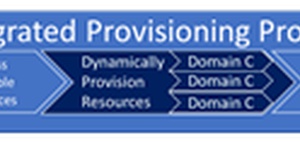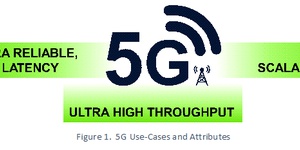
Whitepapers
Forecast of Mobile Broadband Bandwidth Requirements

The consumption of video content is creating a shift from use in the home to mobile devices.
Consumption of video is driving exponential increases in mobile bandwidth demand. ACG Research projects most likely peak period bandwidth requirements to increase at 52 percent compound annual growth rate through 2018.
We use the forecast to model engineered backhaul capacity requirements for a 1,200 square kilometer metro area with a population of 2.5 million. This case study finds that the cell site backhaul bandwidth requirement will range between 0.4 Gbps and 2.5 Gbps in 2018. The odds favor the high end of this range. 10 Gbps Ethernet links in the access network and 10 Gbps rings will be needed to meet the demand requirement, support growth, and maximize load sharing. Agile network architectures will reduce the cost of supporting the expected rapid and volatile increases in mobile bandwidth demand.
Click for more information about ACG's business case analysis services or contact sales@acgcc.com.
You might like similar whitepapers


Segment Routing: An ACG Research Whitepaper

Using Open Virtual RANs in 5G

Key CommSoft Learnings from #MWC19

Simplifying IP Networks

An Approach to Offering Profitable Managed Network Services

The Economic Benefits of Routed Optical Networks for DCI, Metro, and Long-Haul Applications

Hybrid Networks: Integrated Provisioning for Virtual and Physical Networks

The Economic Benefits of the Ciena Virtualized Edge Solution

Global Pricing for SD-WAN

The Economic Benefits of a Super-Converged Multi-Access Edge Network

Building Open, Scalable Service Delivery Infrastructures

Tunnel-Based versus Tunnel-Free SD-WAN

MODERNIZING THE CABLE SERVICE DELIVERY INFRASTRUCTURE

The Economic Benefits of Automating Capacity Optimization in IP Networks

The Missing Guide in SP Managed Services Profitability

Comparing Broadband Network Architectures in the Evolving Connectivity Landscape

Next-Generation Cloud Metro Network Requirements and Architectures

The TCO Benefits of Dell’s Next-Generation Telco Servers

Middle-Mile Networks Capacity Requirements for Fixed Broadband

Huawei ADN Solution Approach to Implementing Autonomous Networks

The Economic Benefits of Distributed Broadband Services

Meet Market Needs with Software-Enabled Solutions

Virtualization Journey: Cable Companies Are on Their Way

Disruption Propelling Massive Changes in Video Market

The TCO Benefits of Distributed Broadband Services with CUPS

A TCO Comparison of Private WANs vs Managed Network Services for Enterprises

TCO Benefits of Converged 5G Ready IP Transport

The Right Container Platform(s) for Modern OSS and BSS

Coriant’s Multi-Sided Platform Partner Program: Market Impact Report

THE POWER OF DIFFERENTIATION: BUILDING BROADBAND FOR 2021 AND BEYOND

Itential Vendor Profile: Automation and Orchestration for Multi-Domain Networks

AUTOMATING 5G ACCESS DEPLOYMENTS

Always On, Active Analytics and AI for Superior Performance in Digitally Powered Enterprises

The Economic Benefits of Juniper Apstra and CN2 in a Modern 5G Network

Achieving End-to-End Intelligence in the Cable Access Network

INTRODUCING xHAUL REWRITING THE PLAYBOOK FOR TRANSPORT NETWORKING IN THE RAN IN 5G

Broadband Access Transformation

The Economic Benefits of Virtual Edge Services

Coriant Groove™ G30 Disaggregated Platform Update: Market Impact Report

Propelling Operators to L3 Operations Autonomy and Beyond with Huawei ADN

Lenovo: Data Center Switch Solutions for Enterprise Data Centers

Understanding VRAN

Accelerating Revenue and Innovation in CSPs' Distributed Clouds

Nuage/ALU on the VNS Solution in an SP Context

Building the Business Case for AI in Wireless Networks: Juniper Mist AI TCO Report

Orchestrating Dynamic Enterprise Services



